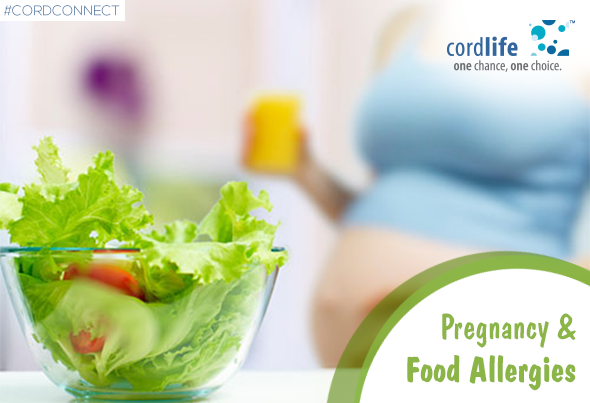Table of Contents
Certain foods might trigger an allergic reaction in your system. While you can deal with your allergies at other times, you might need special care during your pregnancy.
Being pregnant introduces a wonderful new chapter in a woman’s life. She goes through myriad of emotions and bodily changes as the baby grows inside her womb. Whatever she eats, her state of mind, her level of activity, the amount of noise and air pollution she is exposed to – her every act influences the development of her child.
Of every other factor, the most important is what the expectant mother ingests during the course of her pregnancy. This includes not just her food and drink but also any existing medication she consumes. Some women are on daily medication for such conditions as diabetes, blood pressure and respiratory issues even before they get pregnant. Hence, they may be required to continue with the medication even after they are pregnant.
Many pregnant women fear that their medication can adversely impact the health of their unborn baby. But abruptly stopping medication for pre-existing major and minor health conditions can result in the symptoms of that disorder worsening or escalating quickly. Hence, it is better to show the doctor the medicines being consumed and taking advice on whether one may continue with them or not, as early in the pregnancy as possible.
However, a significant research conducted in Melbourne, Australia in the year 2014 found that certain food allergies in newborn babies could be created during the pregnancy itself. A team of doctors and researchers studied the genetic make-up of newborn children that exhibited food allergies, and found that the molecular structure of their blood samples was different from that of non-allergic newborn babies. This could indicate that the food allergenic behaviour was ‘programmed’ into these children during pregnancy itself – a key finding that could explain how their mothers’ environment impacted the foetus into developing allergies.
The study analysed the food and lifestyle habits of these babies’ mothers, such as smoking, eating junk food or consuming nuts during their pregnancy. In the last known development of the research, which has now been upscaled to include over 5,000 newborn babies with food allergies, the babies were being screened for egg and peanut allergies.
While some women experience lesser than usual food allergy during pregnancy, for others the symptoms are extremely severe. Blame this on hormonal changes during the pregnant state – it happens because of the body’s natural increased immune tolerance to ‘foreign organisms’, which also includes the foetus, when the body shows a heightened response to normal allergic triggers.[3] Some women may also exhibit symptoms of disorders they have never experienced before pregnancy, such as an allergic reaction to certain types of seafood, for example.
Another contrary explanation for some women suddenly developing a food allergy during pregnancy is that when the body becomes extremely vigilant about protecting the foetus from injection or rejection, it becomes slightly lax about protecting the mother from other allergenic triggers. These triggers include pollen, the albumin in eggs, or peanuts, which are common allergy triggers. Some women realise that they cannot eat foods that they are generally fond of – these can now cause many symptoms such as low blood pressure and breathing problems.
Looking at Allergies with New Respect
For too long, food allergies have not been accorded the kind of recognition that other illnesses and disorders have been given. Most people are aware of food allergies, but it is not considered a serious enough phenomenon even today. Hence, it is important to re-examine the problem of food allergies, especially food allergies during pregnancy, to eliminate their occurrence and catch their symptoms before they turn dangerous or even fatal.
This week marks Food Allergy Awareness Week, whose theme for the year 2016 is ‘Food Allergies: React with Respect’. An apt theme, considering that a food allergy can result in a person being admitted to the emergency room every three minutes, somewhere in the world. It is time to take the phenomenon of food allergies seriously, since they can make living with allergies extremely uncomfortable.
As a start, parents and teachers must be in total sync when it comes to sharing information and resources about the specific food allergies that children suffer from, and how to deal with them in an emergency. Children themselves must be educated about the kinds of food they must eat or avoid and how to administer quick medical aid to themselves if they can. Besides this, workplaces must also be sensitised to treating food allergies with the utmost regard, and have stringent guidelines in place about contacting a doctor or rushing a person to hospital in case of a severe reaction.
